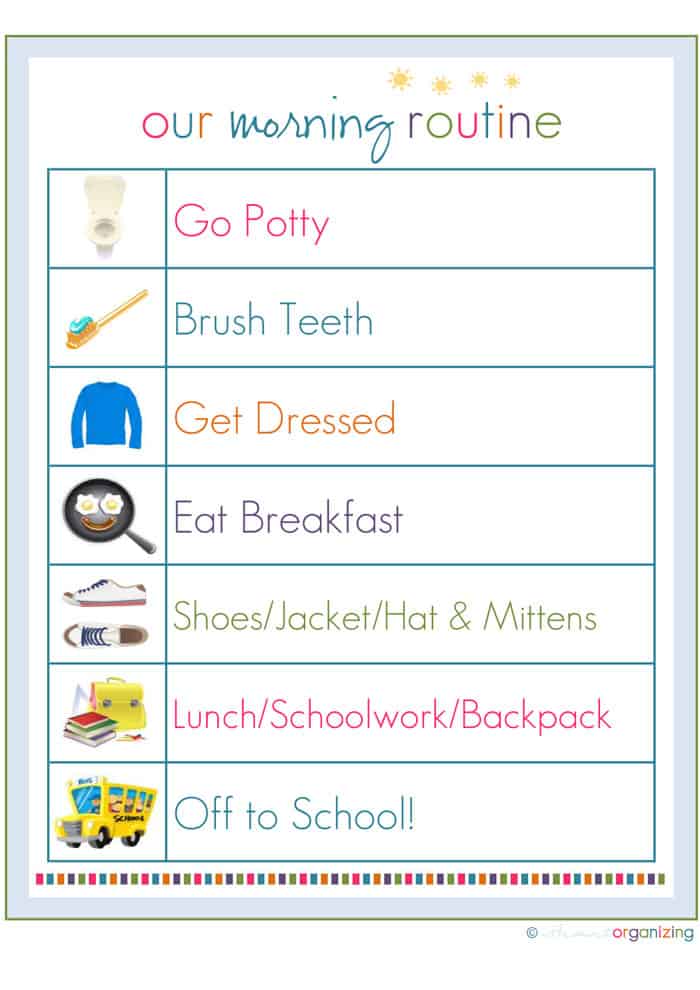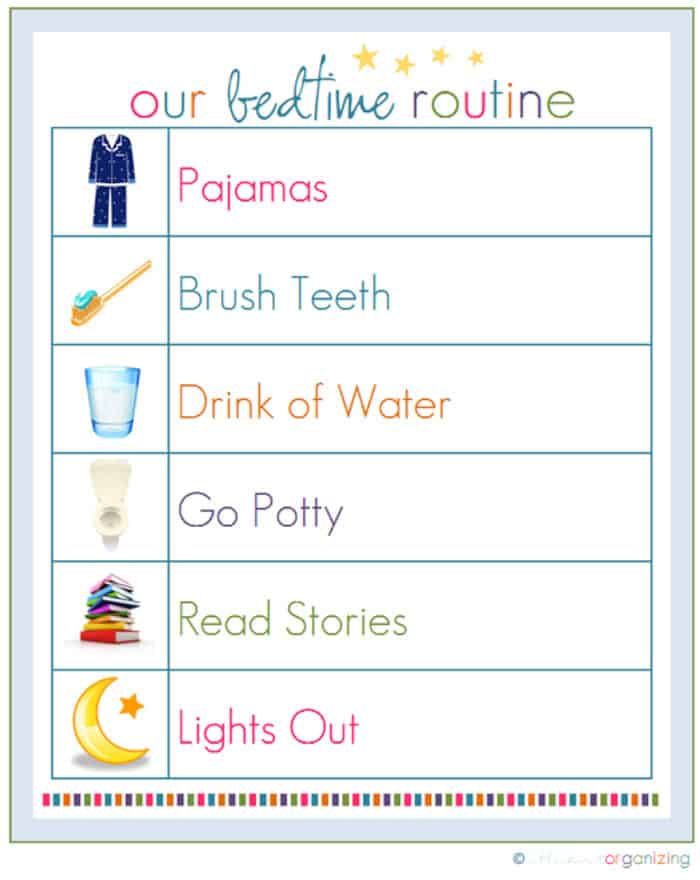Charts For Kids
A Child’s and Parent’s Best Friend!
(Appropriate for kids aged 3 years and up)
So what are charts for kids? Our ultimate job as parents is to do our job properly so that one- day we are out of a job! I don’t mean that you stop being parents, but I do mean that you do get to stop the moment-to-moment acts of parenting.
You will have raised your once dependent children to be strong, confident, competent, successful and independent adults.
You will teach and train them while they are young to be able to be their own best advocate.
They will be equipped to cope with life and all the obstacles life will present with proper tools and life skills.
Our job is now and not tomorrow!
Our job is to create long-term goals and not short term fixes. With the use of charts, routines and schedules you will be working towards these long-range goals, which will benefit both you and your child!
Routines, Schedules and Charts for Kids
These three things will truly save your life and your child’s’!
They will become your best friends: loyal, reliable, consistent, and extremely helpful.
By implementing and training the use of routines, charts and schedules you will be giving your child responsibilities and a great sense of independence. Along with this independence comes a great sense of self-worth and significance.
Alfred Adler of Adlerian Psychology studied that all human beings are born hard-wired to need a certain amount of attention and power each and every day.
As parents it’s our job to help fill this quota. Routines, charts, and routines are a great tool to help us fill up our kids! The responsibility factor helps kids feel needed and worthwhile. It gives them a sense of power and autonomy in their own world. For more on this topic please read “Growing Independence,” from my parenting blog.
Creating Routines
Along with your kids feeling better about who they are, this system helps take some of the workload off of you and spreads it out amongst the family.
By creating routines where your child can complete them successfully and independently, without you nagging or reminding, he/she is feeling a sense of significance and competence.
They get a huge portion of their ‘power bucket’ filled, which is part of your child’s main goal in life: to feel belonging (where they fit in with the family and attention) and significance (power and autonomy over their own life/world). A tool I always recommend to parents to store in their parenting toolbox is a visual timer! Use the timer to be the boss. It keeps you from having to nag and remind and it also makes the timer the bad guy.
Be sure your child understands that when the timer buzzes its time to go. If they are not ready it’s not your problem, it’s theirs. This gives them a chance to learn from their mistakes in a controlled manner and learn to create solutions to help the mistake from re-occurring again in the future.
These are life skills that we need to help our kids develop! It’s just a matter of fact, when its’ time to go the clock or timer says so.
If they have not completed the tasks and it’s time to leave, then they must leave as they are. It will be there responsibility to learn from their mistakes.
Remember mistakes are positive.
Mistakes are chances for your child to grow independence and develop life skills and coping mechanisms.
A time for them to learn! Don’t bail them out. Do them a favor and let them understand that their choices have consequences. If they don’t get dressed, they will go to school without their clothes. If they don’t brush their teeth, they will get cavities and you won’t be able to give them sweets.
These natural consequences are learning tools that will really hit home for your child. As hard as it is to see our kids fail, let it happen!
It’s the only way for them to learn what has to be learned!
Morning and Bedtime Routines
These seem to be the two major areas where parents struggle and get caught up in a constant power struggle.
Finding themselves nagging, reminding, yelling and feeling beyond frustrated.
This battle is one that doesn’t need to go on. If you take the time to commit to the routines, charts and schedules and train up front, role-play, practice, and take the necessary time to answer any questions your child has, you will find your mornings and bedtimes become a breeze.
If you find when you begin that it seems a bit rocky, don’t be afraid to re-visit the training steps. Breaking old habits and creating new habits takes time and patience.
Know that it may be a bit hectic for a while, but hang in there. Remain consistent and stick to the plan.
Remain CALM and remember you are capable of making these positive changes happen. Remember to set a timer or watch the clock (if age appropriate) to help your child be fully in charge of their routines.
Below are examples of morning and bedtime routine charts, which I love, to get you started. These are from www.iheartorganizing.com, but you can find multiple free printable charts and schedules online to meet your exact needs and tailor it to your child’s age and household routines.
Once you train the new routines and charts, tape or place the chart somewhere that your child can access it easily.
The Positives You Will See Once You Begin
Once you take the necessary time to train and practice you are ready to put it in full gear!
In order to be fair you need to reveal in advance to your children that YOU are no longer in charge of them getting ready in the morning or before bed.
YOU are no longer the bad guy.
YOU are no longer the boss.
The charts, routines, clock and timer are in charge. By not being the boss of your child and being in charge you change the dynamic and environment.
You take away the recipe for a power struggle.
You set up the routines with your child and your child becomes in charge.
Thus, creating a positive environment and relationship between the two of you!
By implementing charts, routines and schedules your child will gain confidence, self-worth and feel a great sense of power.
You will feel more relaxed taking some of the load off of your shoulders. You will feel a great sense of accomplishment once you stop nagging and reminding. You will notice your mornings are easy breezy and the power struggles will begin to dissipate!
Trust me it worked in my classroom, it works in my home and it works for my clients time and time again!
TAKE AWAYS:
- Create charts for tasks that your child needs to complete. (Be sure it’s age appropriate and allows them to be successful)
- TRAIN and TEACH. Take the time and front load with the training to give you more time on the back end. Don’t be afraid to go back and RE-TEACH where you see it may need reinforcing.
- STICK TO THE PLAN and DON’T BAIL THEM OUT!
- Give your child opportunities to feel significant, needed, and empowered with personal charts, routines, and responsibilities.
Contact Tia Slightham’s for more info & coaching, links below.

Tia is a Parent Consultant and works with families at Kidcrew Medical hosting workshops and consulting one-on-one. Tia is a mother to two young boys aged 7 and 9 years. She has a Masters in Early Childhood Education and was a teacher before starting her own business, Tia Slightham – Parenting Solutions Inc. Tia is Certified in Positive Discipline and trained in Positive Parenting Solutions. She has worked with kids and families for over 15 years.













